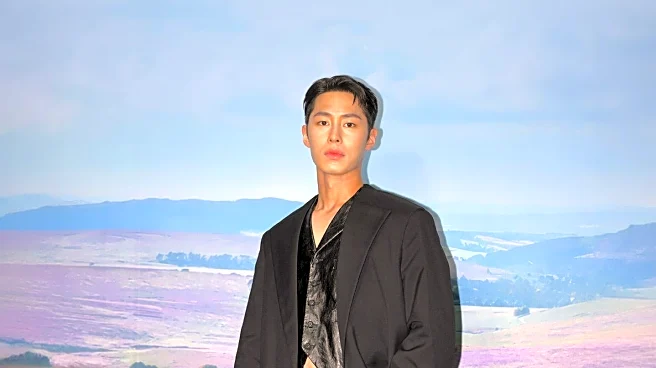What's Happening?
Xander Zhou has unveiled his Shanghai Spring 2026 collection, which defies conventional fashion norms by physically multiplying clothing elements such as lapels, sleeves, and entire garments. This collection is not AI-generated, as Zhou emphasizes through social media, but rather crafted through pure tailoring and craftsmanship. Zhou's work explores the boundaries of perception and sartorial comprehension, questioning the implications of technological advancements on identity and societal norms. The collection introduces SSAW (Spring Summer Autumn Winter), shifting focus from seasonality to context and character.
Why It's Important?
Zhou's collection is significant as it challenges the traditional fashion industry by questioning the role of technology and AI in design. By emphasizing craftsmanship over digital manipulation, Zhou highlights the importance of human creativity in an era increasingly dominated by technology. This approach may influence other designers to reconsider the balance between technology and traditional methods, potentially leading to a broader industry shift. The collection also prompts discussions on identity and societal roles, as Zhou uses fashion to explore these themes, impacting cultural perceptions and fashion narratives.
What's Next?
Zhou's innovative approach may inspire other designers to explore non-digital methods in their collections, potentially leading to a resurgence of traditional craftsmanship in fashion. As the SSAW concept gains traction, it could redefine how collections are presented, moving away from seasonal constraints. The fashion industry may see increased dialogue around the ethical implications of AI in design, as Zhou's work raises questions about identity and technology's role in shaping it. Stakeholders in fashion may need to address these themes in future collections and marketing strategies.
Beyond the Headlines
Zhou's collection raises deeper questions about the intersection of technology and identity, suggesting that reliance on AI could alter personal and societal identities. This exploration of identity through fashion may lead to broader cultural discussions about the impact of technology on human behavior and societal norms. Zhou's work challenges the industry to consider the ethical dimensions of AI in design, potentially influencing future regulations and standards in fashion technology.









